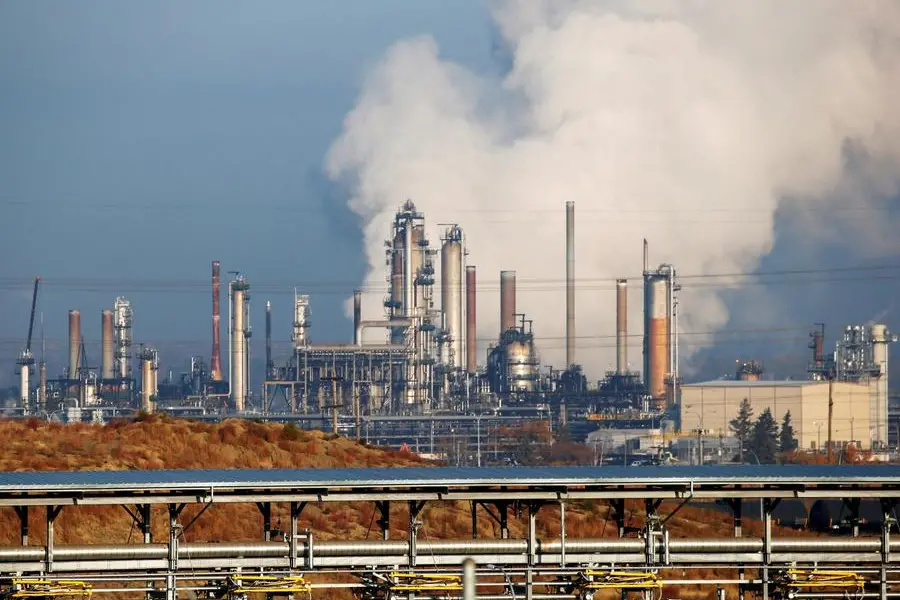PHOTO
TORONTO - Canada on Friday ordered some petrochemical plants in Ontario to take strict measures to control pollution from cancer-causing chemical benzene after release from a facility forced a First Nation community to declare a state of emergency.
Federal Environment and Climate Change Minister Steven Guilbeault issued the order to the petrochemical industry in Sarnia, Ontario, a city less than 300 km (186 miles) west of Toronto.
Last month, Aamjiwnaang First Nation declared a state of emergency due to a chemical release from German company INEOS Styrolution's plastic manufacturing plant, which resulted in at least 10 people visiting the hospital.
The order will require some petrochemical production facilities to implement vapor-control measures, specifically, those that have fenceline concentrations of benzene above 29 micrograms per cubic metre in any of the two-week sampling periods ranging from March 1, 2023, to Feb. 29, 2024.
"It is simply unacceptable that the people of Aamjiwnaang First Nation and Sarnia face ongoing issues with poor air quality," Guilbeault said in a statement.
"Indigenous peoples have a right to a healthy environment and too often are impacted by polluting industries."
Aamjiwnaang First Nation, which has 1,000 residents, is surrounded by industrial facilities. The Frankfurt-based company, a unit of privately owned INEOS Group had shut down its facility on April 20.
The First Nation community said that the order will add to the protection of the air quality in Aamjiwnaang.
According to University of Toronto research, around 40% of Canada's petrochemical plants are located in the Sarnia area, known as "Chemical Valley."
(Reporting by Saadeq Ahmend; Editing by Sandra Maler)





















